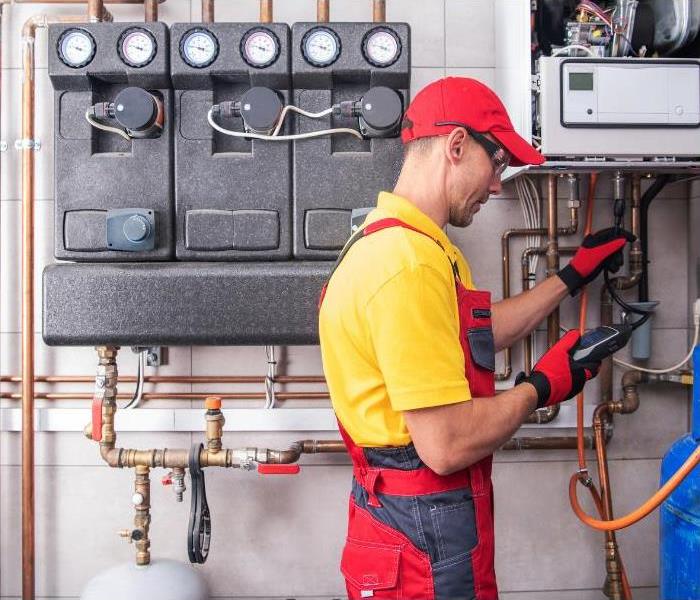Tips to Avoid Fire Damage in Colorado Springs, CO
7/22/2024 (Permalink)
Fire damage can be devastating, not only causing property loss but also endangering lives. In Colorado Springs, CO, where dry conditions and varying weather patterns can increase fire risks, taking proactive steps to prevent fires is crucial. Whether you're a homeowner, business owner, or property manager, implementing fire prevention measures can significantly reduce the likelihood of a fire and protect your property. Here are essential tips to help you avoid fire damage in Colorado Springs:
1. Install and Maintain Smoke Alarms:
Smoke alarms are your first line of defense against fires. Install smoke alarms on every level of your home or business, inside each bedroom, and outside sleeping areas. Test alarms monthly and replace batteries annually to ensure they are working properly.
2. Create a Fire Escape Plan:
Develop and practice a fire escape plan with your family or employees. Identify at least two exits from every room and establish a meeting place outside. Regularly review and update the plan to accommodate any changes in your property layout or occupancy.
3. Inspect Electrical Systems Regularly:
Faulty wiring and electrical equipment are common causes of fires. Have a qualified electrician inspect your electrical system at least once every few years, especially in older buildings or if you notice flickering lights, tripping breakers, or other signs of electrical issues.
4. Use Appliances Safely:
Appliances such as stoves, ovens, dryers, and heaters can pose fire risks if not used properly. Follow manufacturer's instructions for installation and maintenance. Keep flammable materials away from heat sources and unplug appliances when not in use.
5. Properly Dispose of Smoking Materials:
If you smoke, use deep, sturdy ashtrays and ensure cigarettes are completely extinguished before disposal. Never smoke in bed or leave smoking materials unattended. Consider implementing a designated smoking area away from buildings.
6. Keep Flammable Materials Secure:
Store flammable liquids, such as gasoline, propane, and paint, in well-ventilated, designated areas away from heat sources and sparks. Use approved containers and follow local regulations for storage and disposal.
7. Maintain Heating Systems:
Furnaces, chimneys, and heating systems should be inspected and cleaned annually by professionals. Clear debris and combustible materials from around heating units, and never use extension cords or overload outlets with heating appliances.
8. Practice Safe Cooking Habits:
Cooking fires are a leading cause of home fires. Stay in the kitchen when cooking, and keep flammable materials like towels and curtains away from the stove. Use a timer to remind yourself of food cooking on the stove or in the oven.
9. Monitor Open Flames:
Candles, fireplaces, and outdoor fires should be attended at all times. Use sturdy candle holders and place candles on stable surfaces away from curtains, bedding, and other flammable materials. Install spark arrestors on chimneys to prevent sparks from escaping.
10. Educate and Train Residents or Employees:
Provide fire safety education and training to everyone in your household or workplace. Ensure they know how to use fire extinguishers and when to evacuate safely. Encourage a culture of fire safety and awareness.
11. Install Fire Suppression Systems:
Consider installing fire sprinkler systems or other fire suppression systems, especially in larger buildings or areas prone to fire hazards. These systems can significantly reduce fire damage and help contain fires before they spread.
12. Stay Informed About Fire Risks:
Pay attention to local fire weather warnings and fire restrictions issued by authorities. During high-risk periods, take extra precautions and limit activities that could start a fire outdoors.
By implementing these fire prevention tips in Colorado Springs, CO, you can significantly reduce the risk of fire damage to your property and ensure the safety of your loved ones or employees. Prevention and preparedness are key to minimizing the impact of fires, making it essential to stay vigilant and proactive in fire safety practices. Protect what matters most by taking action today to prevent fires tomorrow.



 24/7 Emergency Service
24/7 Emergency Service
